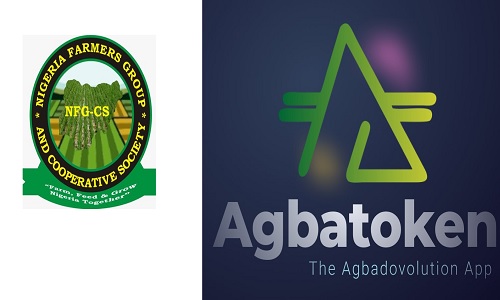In a significant move to bolster Nigeria’s food security initiatives, key players within the Nigerian Farmers Group and Cooperative Society (NFGCS) have introduced Agbatoken, a groundbreaking blockchain technology set to revolutionize the agricultural landscape in the country.
Representing the stakeholders, Mr. Retson Tedheke, the Managing Director and Chief Executive Officer of NFGCS Ltd, described Agbatoken as a form of tokenization in agriculture, seamlessly integrating productivity, efficiency, security, transparency, and cost-effectiveness to enhance the operational capabilities of agribusiness firms.
Tokenizing Agricultural Assets for Improved Financial Viability
During a press conference held at the NFGCS Farm Estate in Keffi, Nasarawa State, Tedheke elucidated that Agbatoken involves the digitization of real-world assets such as crops, livestock, infrastructure, and land, transforming them into encrypted tokens traded on the blockchain.
These tokens, according to Tedheke, can be bought, sold, or traded, offering farmers a unique opportunity to raise capital by selling shares of their assets. This innovative financial approach empowers farmers to secure funds without relinquishing ownership, providing a viable solution to their financial needs.
“Blockchain technology is becoming integral to the agricultural supply chain. With the increasing demand for food security, substantial investments in food production, and a call for transparency in agricultural investments, leveraging blockchain has become imperative,” stated Tedheke. He emphasized the growing global interest in food production due to concerns about food safety, sustainability, support for local economies, rural infrastructure development, and workers’ rights.
Agbatoken’s Commitment to Sustainable Agriculture
Agbadovolution Technologies Limited, through Agbatoken, is unwavering in its commitment to utilizing blockchain for sustainable food production, aiming for a socially stable global future. Tedheke expressed the organization’s dedication to having stakeholders and clients contribute to global welfare by addressing the critical issue of feeding the world.
While acknowledging that blockchain technology is relatively new to the agricultural sector, Tedheke highlighted its rapid advancement. “The blockchain in the agriculture and food supply chain market, valued at $285 million in 2022, is projected to reach an astonishing $7.3 billion by 2031. This remarkable growth is particularly exciting for blockchain proponents,” he noted.
Asset Tokenization: A Catalyst for Agricultural Productivity
Tedheke underscored the inclusive financial capabilities brought about by asset tokenization. He emphasized the transformative potential of the synergy between food, people, and asset tokenization, predicting that Nigeria will spearhead the revolution in agricultural productivity.
In conclusion, the introduction of Agbatoken marks a pivotal moment for Nigeria’s agricultural sector, aligning with the global trend of harnessing blockchain technology for sustainable and transparent agricultural practices. As the initiative gains momentum, it has the potential to reshape the future of agriculture, not only in Nigeria but on a global scale.
This news is republished from another source. You can check the original article here

